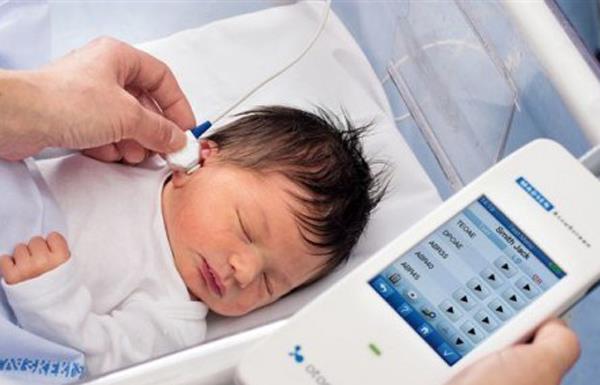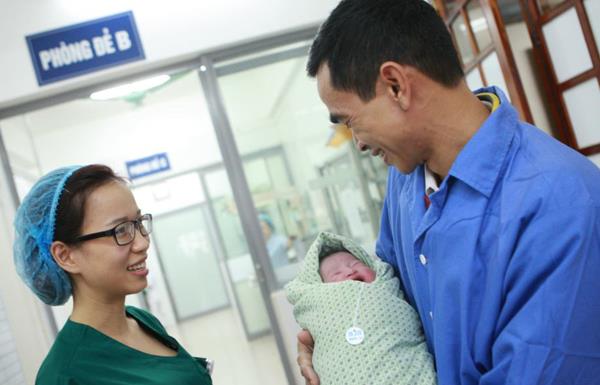Not many mothers know that it is necessary to screen for newborn hearing loss right before leaving the hospital. This is extremely important to protect your baby's hearing.
content
What is hearing loss disorder?
Children at high risk
The implementation process is not complicated
Ability to find sounds for babies high
Although important, but not many pregnant mothers know about this issue. Usually go to the hospital to give birth and do basic tests for your baby after giving birth, then go home. Wait until the 2-3 year old child realizes the problem, then it is too late to treat. Postpartum screening is essential and this is probably a concept mothers need to update soon in their pregnancy directory.

The early hearing loss screening the higher your chance to protect your child's hearing
What is hearing loss disorder?
Hearing loss (hearing loss or deafness) is one of the most common disorders. It is known as a condition in which one or both ears cannot be heard completely or partially. Hearing loss can be seen in the rate of 3-4 per 1,000 babies, the highest can be 1-2 per 100 babies.
Hearing loss is most irreversible, but hearing loss can be improved if detected and treated early.
Children detected late, and specifically after 2-3 years of age, are more likely to suffer permanent, irreparable disabilities in their speech, language and cognitive development compared to normal children. .
Children at high risk
There are many causes of hearing loss, with babies most affected by 5 factors:
Because the mother suffers from a number of diseases during pregnancy such as infection with cytomegalovirus, rubella (German measles), syphilis, herpes, toxoplasmosis.
Due to a family history of hearing loss
Due to maternal exposure to or use of strong antibiotics in the treatment of infections of the genomic aminoglycosides (gentamycin, kanamycin), anticancer chemotherapy, or toxic chemicals that can affect fetal hearing.
Babies born prematurely or born at low birth weight have signs of postpartum respiratory distress.
Children with jaundice due to increased bilirubin, meningitis.
The implementation process is not complicated
The best procedure is to do it in the hospital before the baby and mother go home. The program is implemented with 2 methods: Measuring the sound coming out of the cochlea and the sound response of the brain stem
A qualified doctor will use the examination equipment. If the baby passes the test the first time, it means that his or her hearing is normal.

The cost is not high so mothers should perform hearing screening for newborn babies early
If not passed, the test will be resumed after a month and may be recommended to refer to an audiologist for further investigation.
Exam time only needs 5-7 minutes, does not affect the baby's health. The cost of implementation at each hospital is different but not too high.
Ability to find sounds for babies high
If newborn hearing screening is conducted within 1 month of birth, diagnosis is confirmed within 3 months after birth and intervention (if the baby has hearing loss) within 6 months of birth will have high resilience.
For families with a child with hearing impairment, the journey of finding sound and restoring sound so that the child can hear and speak is really complicated and requires the patience and cooperation of the parents.
The case of suspecting that a child with hearing loss must go to an in-depth examination to get advice from an audiologist, not voluntarily learn and hear about news because the time to effectively care for the child is only about the first 3 to 5 years.

Is prenatal screening necessary? To check the development of the fetus, many mothers choose a prenatal screening test. Should everyone who is pregnant should have this test? What are the potential risks and risks of the test? Mother refer to the following information!
Modern medicine is developing day by day, technology-era child rearing has many advantages, and hearing loss screening is necessary. Parents should learn carefully before deciding to have a baby.














